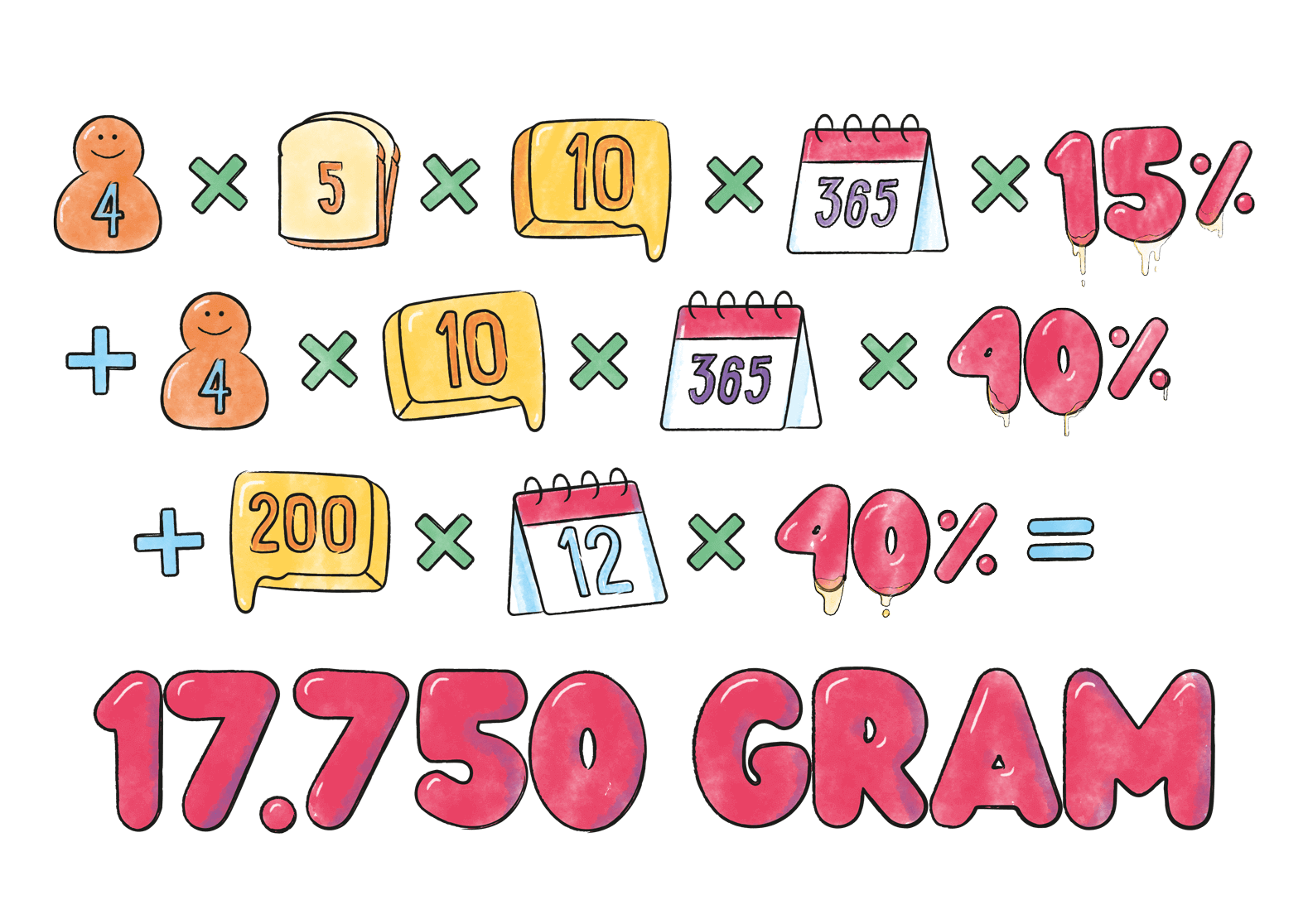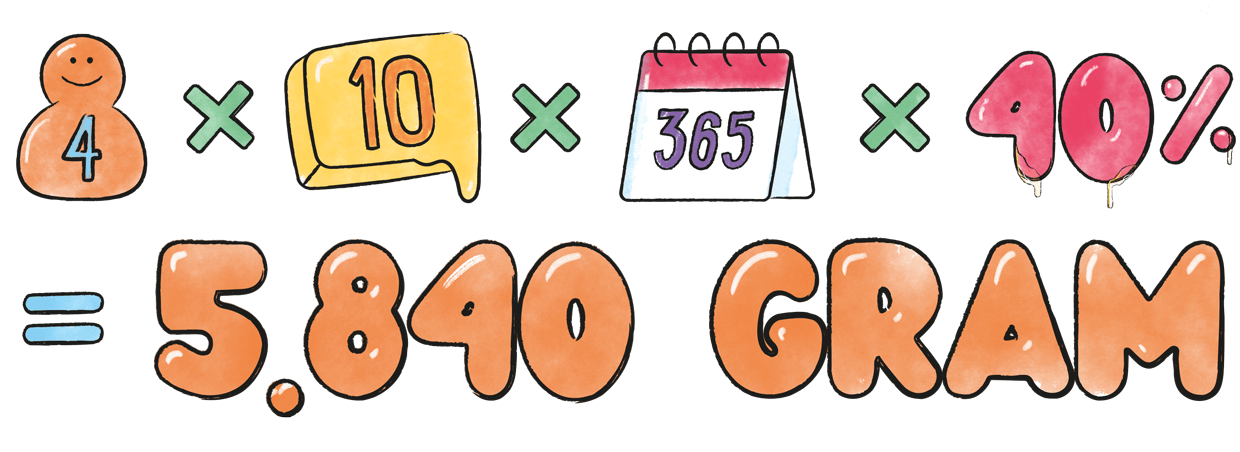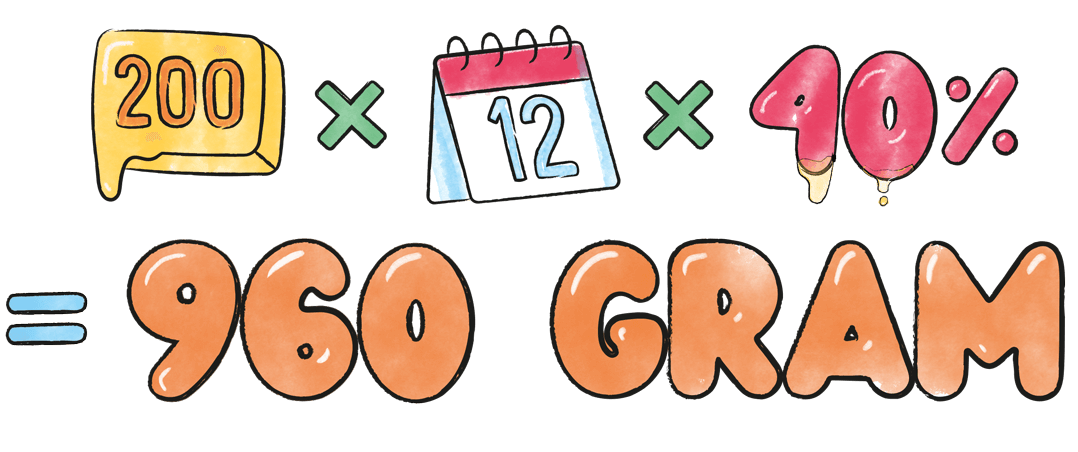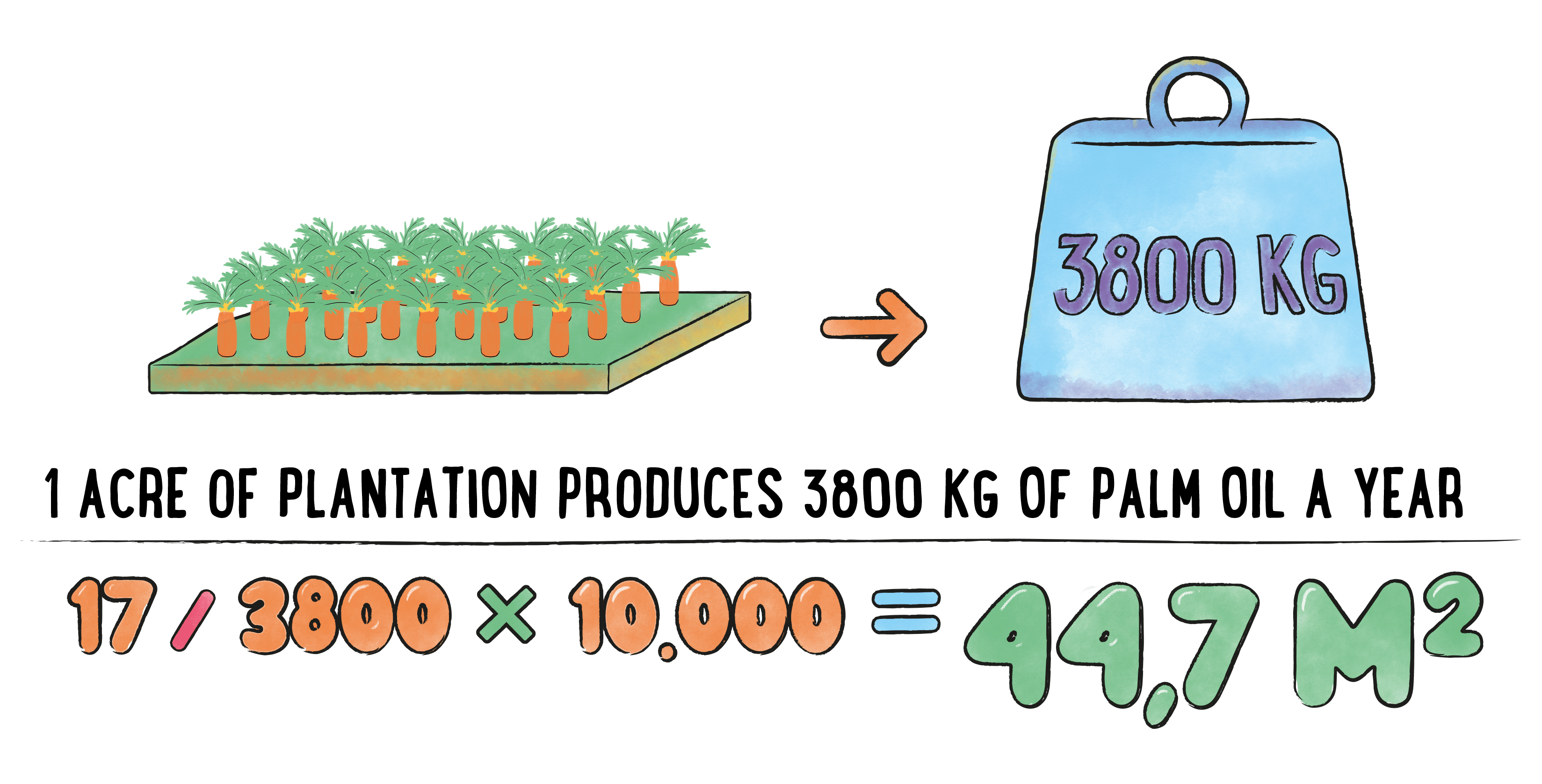If we use less palm oil, the demand for palm oil decreases. As demand decreases, fewer plantations that require the clearing of rainforest are necessary.
Per year, a family of four can save over 17 kilograms of palm oil just by using palm oil-free spread. Those 17 kilograms would require more than 44 square metres of plantation.
Imagine what we can accomplish together!
HOW DO WE GET TO 17 KILOS OF PALM OIL AND 44 M2 OF PLANTATION PER YEAR?

So almost 18 kilos, but we round it off to 17 kilos.
That doesn’t look very easy to work out, but it is. We assume a family of 4 eating slices of bread, cooking, frying or roasting vegetables or meat in the evening and baking a cake, pie, or biscuits once a month.
We can assume five slices of bread per person per day, with 10 grams of spread with a palm oil content of 15 per cent spread on each slice

For cooking, frying or roasting, 10 grams of spread with a palm oil content of 40 per cent is used per person per day.

And for a monthly cake, apple pie or biscuits, an average of 200 grams of spread is used containing 40 per cent palm oil.

So a total of 17,750 grams of palm oil can be saved by spreading, baking and frying with The Flower Farm. We round this down to 17 kg.
For our calculation, we assumed an average family consisting of a 40-year-old man, a 40-year-old woman and two children; a boy aged 8 and a girl aged 10.
The Dutch Nutrition Centre’s ‘Wheel of 5’ recommends 6-8 slices of bread per day for a 40-year-old man, 4-5 for a 40-year-old woman, and 4-6 slices each for children. We think that is quite a lot, so we have calculated based on five slices per day per person.
We use a portion size of 10 grams of spread per slice. That is the generally accepted serving size in ‘the industry’ and corresponds to the amount of spreadable fats recommended by the Dutch Nutrition Centre.
The Nutrition Centre assumes that for frying and roasting meat, 10-15 grams of oil or fat is used per meat portion of 100-150 grams.
We determined the average amount of palm oil contained in spread using data from known manufacturers. Spread for spreading contains an average of 60% fat. That fat is partly palm oil, 25% on average. For example, 100 grams of spread contains 15 grams of palm oil: 15%.
Spread for baking or frying contains 80% fat, of which 50% is palm oil. 100 grams of this spread contains 40 grams of palm oil: 40%.%.
HOW DO WE GET OVER 44M2 OF PLANTATION?

For this calculation we have assumed the average production of an oil palm plantation according to MVO, the chain organization for oils and fats. CSR assumes 3800 kg of palm oil per hectare.
HOW DO WE GET TO 2 MILLION SQUARE METRES OF PLANTATION?
You may be thinking, how do they come up with so many square metres of palm oil plantation that they make redundant? That's a fun question. Do the math. We take the number of products times the percentage of palm oil in those products and that gives a number of kilos of palm oil saved. If you then divide that by the average yield per square metre of a plantation, you arrive at the number of metres of plantation we save. Very simple really. Of course, you can say that there is less palm oil yield or that a plantation produces every year. That affects the outcome up and down. But our concern is not so much about the exact number of metres but t he fact that we have an effect on the growth of unsustainable palm oil plantations and thus we hope to reduce worldwide deforestation and thus pressure on the rainforest. Get it?